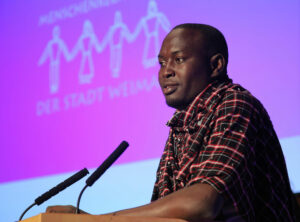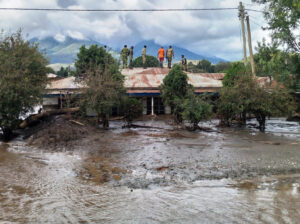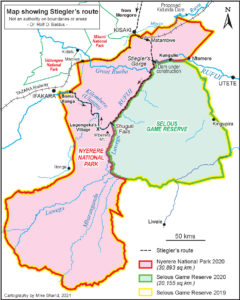by Charlotte Baker
Attacks on people with albinism in Tanzania: African court holds government responsible – why it matters
Charlotte Baker, Professor of French and Critical Disability Studies, Lancaster University
This article was originally published on TheConversation.com
People with albinism face widespread discrimination in many sub-Saharan African countries. In Tanzania, this minority has been subjected to extreme forms of violence. The government’s failure to protect their rights prompted the filing of a case before the African Court on Human and Peoples’ Rights. The case was brought by Tanzanian and international civil rights groups against the government of Tanzania. They were seeking more robust legal protections from the state for people with albinism.
In February 2025, the court delivered a landmark judgment, holding Tanzania accountable for human rights violations against persons with albinism.
What is the background to the case?
Human rights violations and abuses against people with albinism in Tanzania are common. This includes extreme forms of violence such as killings, abductions, mutilations and infanticide. Even after a person with albinism has died, their graves are at risk of exhumation to obtain body parts for sale.
A range of traditional and more modern beliefs drive the oppression of people with albinism. However, structural reasons related to social inequities have created a market in the body parts of people with albinism. These are used for the production of “charms” by “witchdoctors” who promise they’ll bring wealth and success.
The first media reports of attacks on people with albinism in Tanzania emerged in 2007, bringing international attention to the issue. Since then, over 700 attacks and killings in 28 countries have been reported to the Canadian NGO Under the Same Sun, although many more go unrecorded. The organisation works to end discrimination and violence against persons with albinism.
In Tanzania, there have been 209 reports of attacks since 2007. In June 2024, a two-year-old girl with albinism was abducted and killed in Kagera region.
What does the court ruling mean for persons with albinism?
Under international human rights law, the fundamental rights of persons with albinism must be protected under the UN’s Universal Declaration of Human Rights. Upholding the rights of people with albinism would ensure that they were treated fairly and with respect.
The African Court on Human and Peoples’ Rights found that, although some steps have been taken in the right direction, Tanzania has violated the right to life of persons with albinism by not protecting them as required under Article 4 of the African Charter. It also found the state violated the right to non-discrimination by failing to put enough measures in place to fight myths and stereotypes relating to albinism.
What does the Tanzanian government need to do?
The court determined that superstitions and harmful beliefs had led to discrimination and the targeted killings of persons with albinism. It ordered the government to make provision for nationwide awareness campaigns for at least two years to combat myths and superstitions about albinism.
The court requires the Tanzanian government to amend the 1928 Witchcraft Act to criminalise attacks against persons with albinism. This is in response to UN Resolution 47/8 on the elimination of harmful practices related to accusations of witchcraft and ritual attacks.
The government of Tanzania is also ordered to implement its national action plan on the protection of persons with albinism. The national action plan should address stigma and structural issues that lead to discrimination.
The government must also ensure the right to health protection. This includes access to skin and eye health services. Providing protective clothing and sunscreens can be lifesaving.
Meeting the needs of children with albinism in educational settings must be a priority for the Tanzanian government. This can mean minor adaptions to classroom layouts and access to visual aids. Most importantly, it requires a change in attitudes among teaching staff and other pupils.
Tanzania has also been ordered to establish a compensation fund and compensate persons with albinism who have been victims of violent attacks.
What power does the court have to ensure enforcement?
The African Court on Human and Peoples’ Rights has instructed Tanzania to publish the judgment on government websites within three months. It should remain accessible for at least a year.
The government must also submit a report on the implementation of the ruling within two years. If it hasn’t fully complied within three years, a hearing will be held. However, the court has a non-compliance crisis and there are no built-in consequences in its protocol.
The partners involved in bringing the case will monitor Tanzania’s compliance with the court’s orders.
The Institute for Human Rights and Development in Africa has called on civil society organisations, policymakers and human rights defenders to support efforts to protect the rights of people with albinism in Tanzania and beyond.





